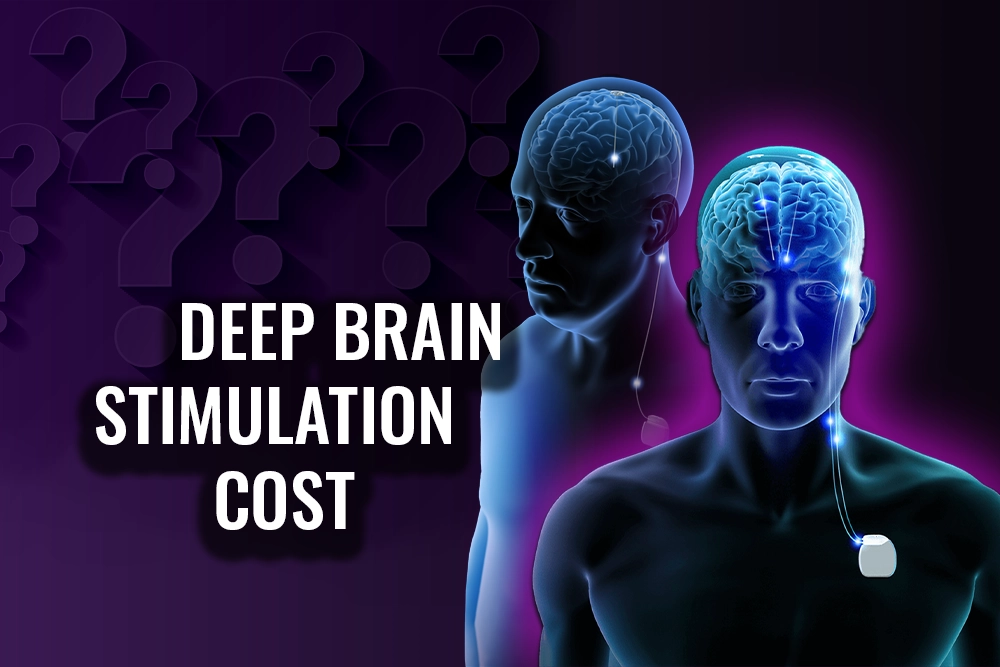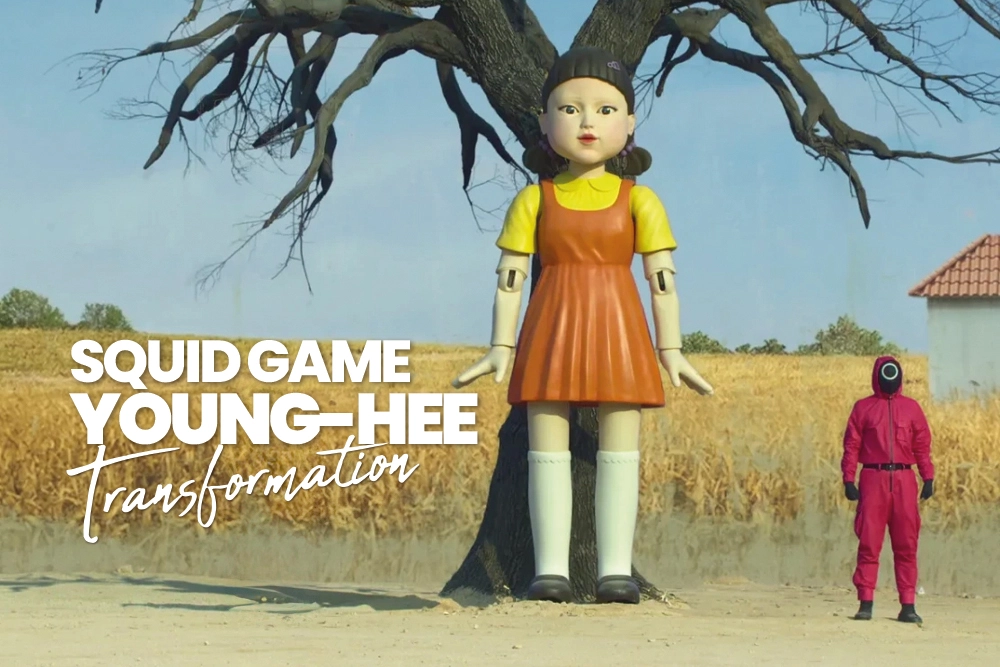Deep Brain Stimulation (DB) is primarily used to treat conditions such as Parkinson’s disease, essential tremor, dystonia and certain types of epilepsy. The procedure can significantly improve symptoms like tremors, stiffness and movement disorders, enhancing the patient’s quality of life.
Deep Brain Stimulation (DBS) surgery is a revolutionary treatment of movement disorders for neurological disorders such as Parkinson’s disease, essential tremor, and dystonia, and is well supported by cost-effectiveness studies. This minimally invasive procedure involves implanting electrodes into specific areas of the brain to regulate abnormal activity. The electrodes are connected to a neurostimulator, a small device placed under the skin, usually near the collarbone, and its cost-effectiveness is a subject of ongoing research.
Deep Brain Stimulation Surgery
DBS works by sending electrical impulses to targeted brain regions, helping to alleviate symptoms like tremors, stiffness, and involuntary movements. The procedure is adjustable, allowing doctors to fine-tune the settings for optimal results, and is reversible if needed. Candidates for DBS typically include patients who have not responded well to medication or other treatments.
The benefits of DBS surgery are significant. Patients often experience substantial symptom relief, improved quality of life, and reduced dependence on medications. Recovery involves a short hospital stay, with follow up visits to adjust the neurostimulator settings.
In summary, Deep Brain Stimulation surgery is best medical treatment and offers hope and improved outcomes for individuals with debilitating neurological disorders, making it a valuable option in the field of neurology.
Deep Brain Stimulation Procedure
The Deep Brain Stimulation (DBS) procedure is a highly effective treatment for neurological disorders such as Parkinson’s disease, essential tremor, and dystonia. This advanced surgical technique involves implanting electrodes into specific areas of the brain to regulate abnormal electrical activity.
During the procedure, a neurosurgeon places thin electrodes into targeted brain regions. These electrodes are connected to a neurostimulator, a small device implanted under the skin near the collarbone. The neurostimulator sends controlled electrical impulses to the brain, helping to alleviate symptoms like tremors, stiffness, and involuntary movements.
DBS treatment is particularly beneficial for patients who do not respond well to medication. The procedure is minimally invasive and adjustable, allowing doctors to fine-tune the settings to achieve the best possible results. Additionally, DBS is reversible; the device can be turned off or removed if necessary.
Patients undergoing DBS typically experience significant improvements in their quality of life. Recovery involves a brief hospital stay, followed by several follow-up visits to adjust the neurostimulator settings, aiming for the best medical therapy outcomes. Overall, the Deep Brain Stimulation procedure offers hope and relief for those suffering from debilitating neurological conditions, making it a valuable option in modern medicine.
Deep Brain Stimulation Depression
Deep Brain Stimulation (DBS) is an innovative treatment option for individuals suffering from severe, treatment-resistant depression. This surgical procedure involves implanting electrodes into specific areas of the brain that are linked to mood regulation. The electrodes are connected to a neurostimulator, a small device implanted under the skin near the collarbone.
DBS works by sending targeted electrical impulses to the brain, which can help modulate abnormal neural activity associated with depression. This procedure offers hope to patients who have not responded to conventional treatments such as medication and therapy.
The benefits of DBS for depression include significant improvement in mood, reduction in depressive symptoms, and enhanced overall quality of life, supported by studies on its cost-effectiveness. The procedure is minimally invasive and adjustable, allowing doctors to fine-tune the stimulation settings to achieve the best possible outcomes. Additionally, DBS is reversible, meaning the device can be turned off or removed if necessary.
Patients undergoing DBS for depression typically require a short hospital stay for the procedure, followed by regular follow-up visits to adjust the neurostimulator settings, and a cost-effectiveness analysis shows promising results for this approach. While DBS is not a cure for depression, it offers a promising option for those who have exhausted other treatments and continue to suffer from debilitating symptoms.
In summary, Deep Brain Stimulation for depression provides a new avenue of hope for patients with treatment resistant depression, leveraging advanced technology to improve mental health and quality of life.
Deep Brain Stimulation Success Rate
Deep Brain Stimulation (DBS) is a highly effective treatment for various neurological conditions, including Parkinson’s disease, essential tremor, and dystonia. The success rate of DBS varies depending on the specific condition being treated and the individual patient’s response to the therapy.
For Parkinson’s disease, studies have shown that DBS can lead to a significant reduction in motor symptoms, with success rates of up to 95-99%. Patients often experience improved quality of life, reduced tremors, and decreased reliance on medication. Similarly, for essential tremor, DBS has been reported to reduce symptoms by approximately 90%, allowing patients to regain control over their movements and daily activities.
In cases of dystonia, DBS has shown success rates of around 85-90%, with patients experiencing considerable improvements in muscle contractions and overall motor function. While the effectiveness of DBS for other conditions, such as depression and epilepsy, is still being researched, early results are promising, indicating substantial symptom relief for many patients.
The success of DBS also depends on the expertise of the surgical team and the precise placement of the electrodes. Regular follow up and adjustment of the neurostimulator settings are crucial for achieving optimal results, especially given the cost of Deep Brain Stimulation and the need for cost-effectiveness.
In conclusion, the success rate of Deep Brain Stimulation is highly encouraging for those suffering from debilitating neurological disorders, with systematic reviews supporting its cost-effectiveness. With ongoing advancements in technology and surgical techniques, DBS continues to offer hope and improved quality of life for patients worldwide.
Deep Brain Stimulation and Parkinson’s
Deep Brain Stimulation (DBS) is a breakthrough treatment for patients with Parkinson’s disease, providing significant relief for patients with advanced symptoms. Parkinson’s disease is a progressive neurological disorder that causes tremors, rigidity, and difficulties with movement and coordination, often requiring neurosurgery for advanced Parkinson disease management. While medications can help manage these symptoms, their effectiveness often diminishes over time.
DBS involves the surgical implantation of electrodes into specific areas of the brain responsible for movement control. These electrodes are connected to a neurostimulator, a small device placed under the skin near the collarbone. The neurostimulator sends electrical impulses to the brain, helping to regulate abnormal neural activity and improve motor function.
The benefits of Deep Brain Stimulation for Parkinson’s patients are considerable. Research shows that DBS can effectively reduce tremors, improve mobility, and decrease the need for medication, enhancing the overall quality of life. This treatment is particularly beneficial for patients who no longer respond adequately to medication alone.
DBS is also adjustable and reversible. Doctors can fine-tune the neurostimulator settings to achieve optimal results for each patient, and the device can be turned off or removed if necessary.
In summary, Deep Brain Stimulation offers a promising option for managing symptoms of Parkinson’s disease, significantly improving symptoms and enhancing patients’ daily lives, according to a recent cost-effectiveness analysis.
Deep Brain Stimulation For Dystonia
Deep Brain Stimulation (DBS) is an advanced treatment option for dystonia, a neurological movement disorder characterized by involuntary muscle contractions, twisting movements, and abnormal postures. While medication and physical therapy can help manage symptoms, many patients find these treatments insufficient, making neurosurgery a more effective option for advanced Parkinson disease.
DBS involves implanting electrodes into specific areas of the brain that control movement, often targeting the subthalamic nucleus for advanced Parkinson disease. These electrodes are connected to a neurostimulator, a device placed under the skin near the collarbone. The neurostimulator sends electrical impulses to the brain, helping to regulate abnormal neural activity and improve motor function.
The benefits of DBS for dystonia patients are significant. Studies have shown that DBS can reduce muscle contractions, improve mobility, and enhance the overall quality of life. This treatment is particularly effective for patients who do not respond well to conventional therapies.
Deep Brain Stimulation For Epilepsy
Deep Brain Stimulation (DBS) is an innovative treatment for epilepsy, particularly for patients who do not respond well to medication, often presenting a better cost-effectiveness compared to other treatments. Epilepsy is a neurological disorder characterized by recurrent seizures, which can severely impact a person’s quality of life.
DBS involves the surgical implantation of electrodes into specific areas of the brain that are involved in seizure activity. These electrodes are connected to a neurostimulator, a small device placed under the skin near the collarbone. The neurostimulator sends controlled electrical impulses to the brain, helping to regulate abnormal neural activity and reduce the frequency and severity of seizures.
The benefits of DBS for epilepsy patients are substantial. Studies have shown that DBS can significantly decrease seizure frequency and improve the overall quality of life for patients who have not found relief with other treatments. Additionally, DBS is adjustable, allowing doctors to fine-tune the stimulation settings to achieve the best possible outcomes for each patient. The procedure is also reversible, meaning the device can be turned off or removed if necessary.
In summary, Deep Brain Stimulation offers a promising option for managing epilepsy, providing hope and improved quality of life for patients who struggle with medication-resistant seizures.
Deep Brain Stimulation Surgery In Turkey
Deep Brain Stimulation (DBS) surgery is a cutting-edge treatment for various neurological conditions, including Parkinson’s disease, dystonia, and epilepsy, and its cost-effectiveness makes it a viable option. Turkey has emerged as a leading destination for this advanced medical procedure, attracting patients from around the world seeking high-quality care at affordable prices.
DBS surgery involves implanting electrodes into specific areas of the brain that regulate abnormal neural activity. These electrodes are connected to a neurostimulator, a small device placed under the skin near the collarbone. The neurostimulator sends electrical impulses to the brain, helping to manage symptoms and improve the patient’s quality of life.
Turkey’s medical facilities are renowned for their state-of-the-art technology and highly skilled neurosurgeons. Patients benefit from comprehensive care that includes pre-operative assessments, the surgical procedure itself, and post-operative follow-up to adjust the neurostimulator settings for optimal results.
The cost of DBS surgery in Turkey is significantly lower than in many Western countries, making it an attractive option for international patients. Additionally, Turkey’s healthcare infrastructure and experienced medical professionals ensure that patients receive world-class treatment and personalized care throughout their medical journey.
In summary, Deep Brain Stimulation surgery in Turkey offers a combination of advanced medical technology, expert care, and cost-effective solutions, making it a top choice for patients seeking treatment for complex neurological conditions.
Follow us on Social Media
internationalplusofficial
internationalplus
internationalplusdental
This content is written, reviewed, and approved by the International Plus Medical Review Board to ensure clinical accuracy and adherence to strict editorial standards. All medical information is regularly monitored, audited and updated in light of the latest scientific advancements.
However the information provided here is for general informational purposes only and cannot be used for self diagnosis or making individual health interpretations. Results of medical treatments depend on individual anatomy and the unique healing process of each patient. This information should not replace a personal consultation with a qualified healthcare professional. To understand the best options for your specific needs and to receive a personalized treatment plan, we invite you to book a free consultation with the expert medical team at International Plus.
International Plus was established from scratch in 2014 with the sole purpose of providing a world class center for plastic and cosmetic surgery by SAMİLSAN SAĞLIK HİZMETLERİ TURİZM DANIŞMANLIK TİCARET LİMİTED ŞİRKETİ International Plus has developed a worldwide reputation for its unique treatments and techniques. With over 10 years of experience, our talented medical experts are among the best in their respective fields. You are our priority. We are convinced that good communication between you and your surgeon is essential when planning your treatments. We offer realistic advice and the most suitable treatments for you.




